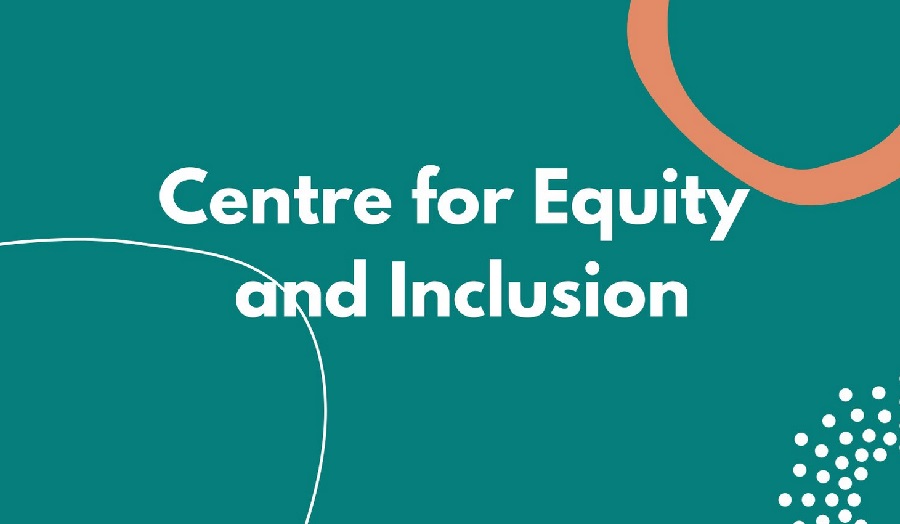The Centre will sit at the heart of London Met, acting as the ideological driving force behind its pedagogy, the student experience and workplace culture.
Date: 03 November 2020
London Metropolitan University launched its new Centre for Equity & Inclusion at a virtual event on 2 November.
The Centre will sit at the heart of London Met, acting as the ideological driving force behind its pedagogy, the student experience and workplace culture. It seeks to draw out the University’s greatest features, building on its existing strengths and celebrating best practice, while recognising the ways in which Higher Education has historically failed to serve diverse communities.
For example:
- Only 57% of Black students achieve first class or 2.1 degrees compared to 81% of White students.
- LGBT students who have experienced a form of homophobic or transphobic harassment are 2-3 times more likely to consider leaving their course.
Dr Zainab Khan, Pro-Vice-Chancellor and Director of the Centre, outlined London Met’s commitment to tackling these challenges at a launch event, saying: “With the launch of the Centre for Equity and Inclusion we are formally declaring that London Met is mounting an insurgency in Higher Education to deliver equity for all and restore public confidence in the broader societal role of Universities.
“This year has intensified the spotlight on health inequalities, economic and employment vulnerability and we have front row seats to an unfolding deprivation and poverty chasm against a backdrop of renewed calls for racial justice. These complex problems playing out on the local, national and international stage are the result of an elaborate web of structural and institutional inequality which ensures that patterns of power and privilege are maintained, keeping the disadvantaged, marginalised and also the melanated on the fringe of full societal participation.
“Within Higher Education, the surge in research into the experience and outcomes of students and staff from underrepresented groups have for many years, pointed unequivocally to the existence of winners and losers within our Universities whether as a result of class, sexual orientation, ethnicity or disability. The Sector has been found wanting, for too long ignoring the impact that lack of progress to tackle discrimination has had on educational outcomes and life chances.”
“Through establishing this Centre we are recognising the historical role and position that Higher Education has played in advancing the ideological basis of systems of oppression in wider society.”
Dawn Butler MP also joined the launch event, where she addressed the role universities can play in tackling social inequality. Butler's work in parliament as Chair of the APPG on Youth Affairs, on the Children and Families Select Committee, and more recently as Shadow Secretary of State for Women and Equalities has made a significant impact on our country.
She said: “We all know these have been really difficult times for universities across the UK, and the educational sector as a whole. COVID-19 has brought us so many challenges, and it is a testament to London Met’s vision and belief in advancing the principles of equity, equality, diversity and inclusion to see this new Centre launched.
“This Centre comes at a time of profound change, when organisations all over the world are evaluating their structures and societal norms after the brutal, public lynching of George Floyd. The education sector has a major role to play in breaking down barriers, promoting opportunities for all students from all and every background. I urge London Met to continue to trailblaze and to promote the values of diversity, equity, inclusion and equality in everything that you do.”
The Centre’s work will be organised across two activity bases; Fair Outcomes for Students and Inclusion for Staff. The former strand will ensure that London Met’s curriculum is embedded with the principles of social justice and equality. This ethos will also be put into practice by building links between the University and the local community, providing students with opportunities to engage in projects and placements focused on addressing inequalities around London so they identify the challenges facing organisations and implement positive change.
The latter will drive change to the University’s day-to-day operations, developed through a strong evaluatory practice and finding an evidence base for ‘what works’. Active and ongoing research projects will ensure that the Centre’s programmes reflect contemporary scholarly understanding, with the researchers engaging in a continuous cycle of engagement and evaluation. All staff will be supported to develop inclusive behaviours to align their work, in recognition of the fact that equity and inclusion is everybody’s responsibility.

